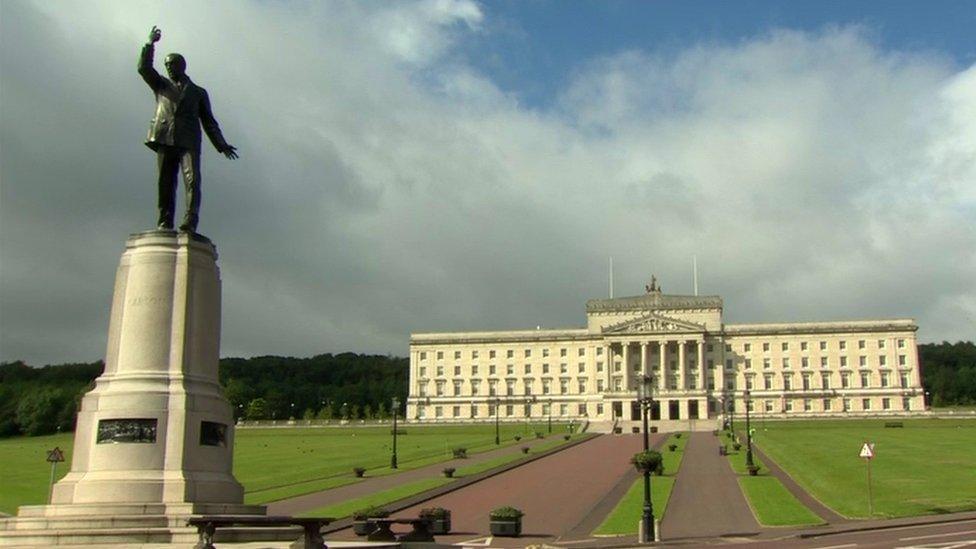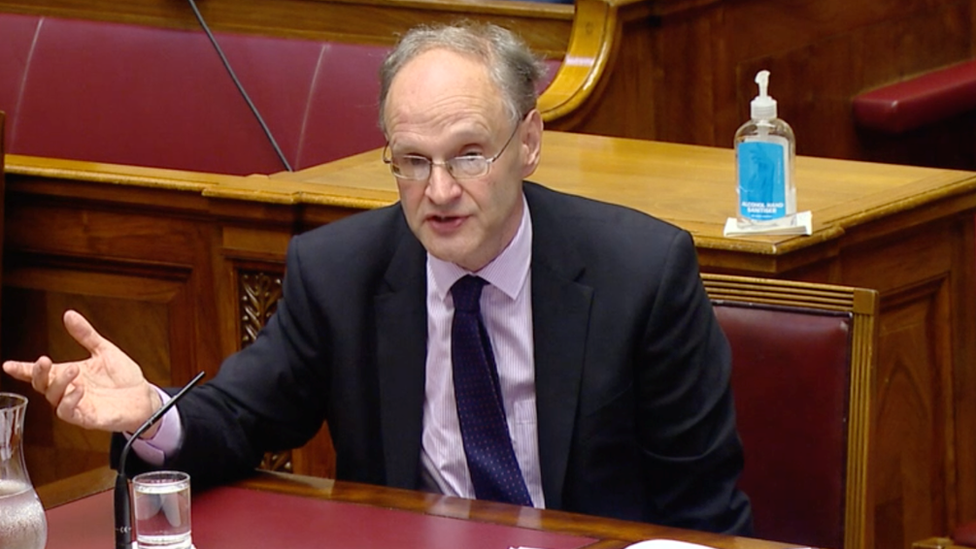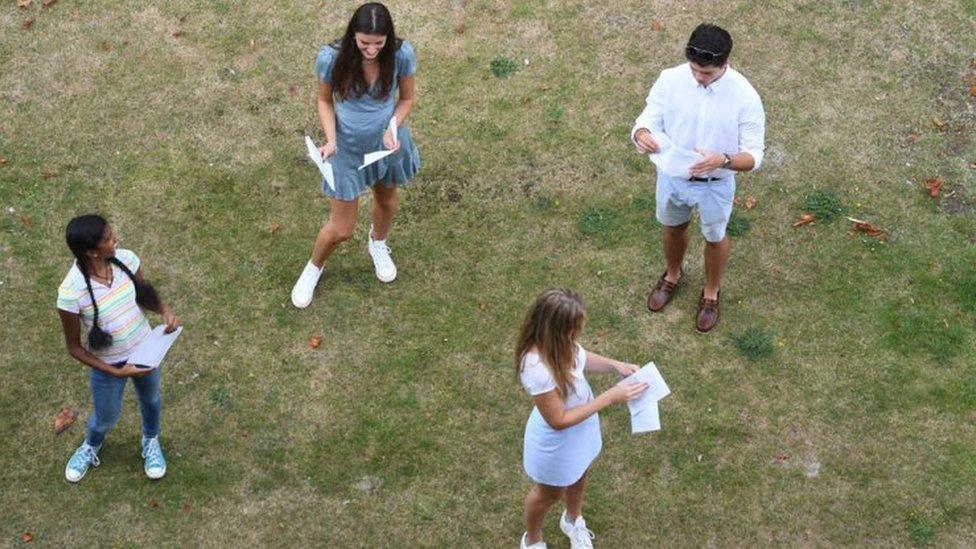Coronavirus: Parties back assembly recall over exam results
- Published

A majority of the Stormont parties have backed a move to recall the assembly to try to address the dispute over exam results in Northern Ireland.
The SDLP had proposed the recall motion, which needed 30 signatures in order to be successful.
It calls on the education minister to award A-level, AS-level and GCSE students the "highest" results from the three criteria exam board CCEA used.
The motion says it should happen due to "exceptional Covid-19 circumstances".
However it will be up to the assembly Speaker Alex Maskey to determine when the assembly debate should take place.
Cancelled exams
By Sunday night more than 45 assembly members (MLAs) had signed the SDLP motion, representing Sinn Féin, the Ulster Unionists, Alliance, People Before Profit, the Green Party, Traditional Unionist Voice and independent MLAs Claire Sugden, Trevor Lunn and Jim Wells, who no longer holds the DUP whip.
It is understood that the SDLP has requested the recall take place on Tuesday.
The wording of the SDLP's initial motion was amended in order to gain the support of more political parties in the assembly.
Last Thursday, more than a third of results for A-level and AS-level students in Northern Ireland were downgraded as a result of the criteria used this year.
Following the cancellation of exams in March due to the coronavirus pandemic, CCEA was instructed by Education Minister Peter Weir to ensure the calculated results in 2020 were broadly in line with performance in recent years.
CCEA asked teachers to give a predicted grade for their pupils and then rank them in order within their class.
It then used other data to standardise the results. For A-levels, the model used pupils' AS-level results and resit data.
According to CCEA, in 37% of cases this year teachers were overly optimistic in their prediction, affecting about 11,000 grades.
In about 5% of tests teachers underestimated the result, meaning that about 1,500 grades rose as a result of standardisation.

Education Minister Peter Weir has been called on to take action over grades
CCEA said if teacher judgement had been used on its own, results would have risen "considerably".
Mr Weir has insisted the grading scheme set up by CCEA was fair - but that a "robust" appeals system is in place for students to appeal.
As of Friday evening more than 600 appeals had been registered with CCEA, a spokesperson said.
'Let down'
In statements on Sunday, the move was welcomed by the political parties.
SDLP leader Colum Eastwood, whose party proposed the motion, said students had been "badly let down by the education minister and CCEA who continue to slavishly prioritise process over the prospects of thousands of young people".
"The notion that the integrity of qualifications can be maintained when the reputation of the examining board and the Department is in tatters is extraordinary," he said.
Sinn Féin's John O'Dowd, who previously served as education minister, said his party had hoped to see movement on the issue over the weekend.
"This is a sensible and responsible approach to finding a solution to the current difficulties," he said.
- Published14 August 2020
